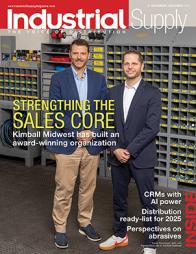Balancing Multiple Generations at Work
By Jennifer FitzPatrick
 Since mandatory retirement has long been abolished in most industries, we are living in a time where there are multiple generations of employees working together. Healthy seasoned octogenarians working alongside college interns, and every age group in between, can make for a particularly generationally diverse workforce. This age diversity in the workplace presents challenges in areas of communication, expectations, work ethic and abilities and strengths.
Since mandatory retirement has long been abolished in most industries, we are living in a time where there are multiple generations of employees working together. Healthy seasoned octogenarians working alongside college interns, and every age group in between, can make for a particularly generationally diverse workforce. This age diversity in the workplace presents challenges in areas of communication, expectations, work ethic and abilities and strengths.
While multigenerational coworkers struggle to understand each other, some of the most difficult situations involve managing a much older or younger staff. Younger managers sometimes categorize their older workers as slower and technologically deficient. Older managers tend to question younger employees' experience, maturity and work ethic.
Samantha, a newly hired 28-year old vice president of a small company is meeting with David, a 52-year old manager who reports to her. Samantha asks David to spearhead a project to create a Facebook page for their company. David responds that he does not know much about Facebook but comments that his teenage sons use it all the time. When David asks why the company would want a Facebook page, Samantha rolls her eyes and chalks this up to David being behind the times.
Robert is a 61-year old supervisor and is constantly receiving requests from his team about working from home. While much of his team's work does not have to be done on site, he does not believe in the concept. Since many of this staff are in their twenties and thirties and have young children, he expects that much work won't be getting done at home. Robert tends to have less confidence in employees wanting flexible schedules.
What can Samantha and Robert do to better lead their employees of different generations? Samantha would probably best engage David if she approached the Facebook situation with patience and additional training. Robert would likely inspire the most loyalty with his team by being a bit more flexible. If Robert made an effort to put some work-life balance policies in place his staff might perceive him as more reasonable and work even harder to get their jobs done.
There are challenges from the subordinate's perspective as well.
While it's usually a mistake to underestimate a younger manager, many older workers do. Sure, it's possible that a younger employee might have been hired or promoted due to nepotism or other unjustifiable reasons. But typically, that younger person is deserving of the position due to education, experience, leadership potential or other abilities. Regardless, it is important to judge younger managers on merit rather than age. While a seasoned employee may resent a younger person coming in and telling him what to do, it is likely this person has something unique to offer.
Sometimes the resentment toward a younger boss has more to do with the older worker than anything the younger manager has done. Reporting to a younger manager can trigger feelings of inadequacy, feeling "old," and regret for how an older worker's career has turned out. The older worker may think back to when he began his career and second guess choices. Older employees struggling with accepting their younger managers should focus on getting along with them and supporting them as they would with any other boss. In managing the situation, the older worker should consider:
- Keeping an open mind about the younger manager. Almost everyone we encounter at work can teach us something. At the very least, most younger managers have fresh new ideas that can invigorate the workplace.
- Avoiding discussion of the younger manager's age. When an older worker starts to compare the younger manager to his daughter or even granddaughter, it can offend the younger manager. Younger managers know their age; they don't need older staff reminding them.
- Refraining from too many references about the past. Harping on the way "it's always been done" or they way things were "before you were out of diapers" will not be appreciated by the younger manager.
- Making an effort to learn technology that the younger boss uses. Not only will this impress a younger manager, it will increase the older subordinate's skill set.
- Accepting that this person is the boss. Ultimately if the older worker wants to remain in the position, an attitude shift is critical in remaining employed or even being promoted.
Younger workers also have a challenge understanding their older managers. They find themselves frustrated when the older manager does not embrace technology, lives in the past or dismisses younger counterparts when they don't recognize pop culture references of the past.
In working with a boss of an older generation, younger employees should consider:
- Respecting the years of experience the older manager brings to the table. Even when an older boss acts in a way the younger staff does not agree with, it should be acknowledged that the decision may be based on past experiences from which the older manager has learned.
- Understanding that "face time" may be very important to an older manager. It is common for older bosses to be less open to the trend of working from home because it was not something with which they had ever become comfortable. If staff members do have flexible schedules or work off site from the older manager, they may want to check in regularly and take steps to reassure the older manager that work is getting done.
- Explaining current pop culture references without making the older employee feel out of the loop. A twenty-something who mentions something he saw on the latest reality show should take the time to let his sixty-something boss in on the joke.
- Accepting that meetings and phone calls may be preferred rather than texting, Skype, instant messaging and e-mail. While many older workers embrace technology, some still favor more traditional modes of communication. Going with the flow on the boss' desired communication method will be appreciated by the older manager.
During this economic time, it is guaranteed that we will continue to see multiple generations collaborating at work. More retirees are reentering the workforce for extra cash and many older adults are delaying retirement indefinitely. With more and more high school and college graduates entering the workforce every year, it is important for workers of all ages to make an effort to understand and appreciate each other.
Jennifer FitzPatrick, MSW, LCSW-C is an author, speaker and educator. Founder of Jenerations Health Education, Inc., she has more than 20 years' experience in healthcare. Jennifer is a frequent speaker at national and regional conferences and is an Adjunct Instructor at Johns Hopkins University. Her new book, "Your 24/7 Older Parent" answers the prayers of those dealing with the care of an elderly parent. For more information on Jennifer FitzPatrick's speaking, please visit www.jenerationshealth.com.











